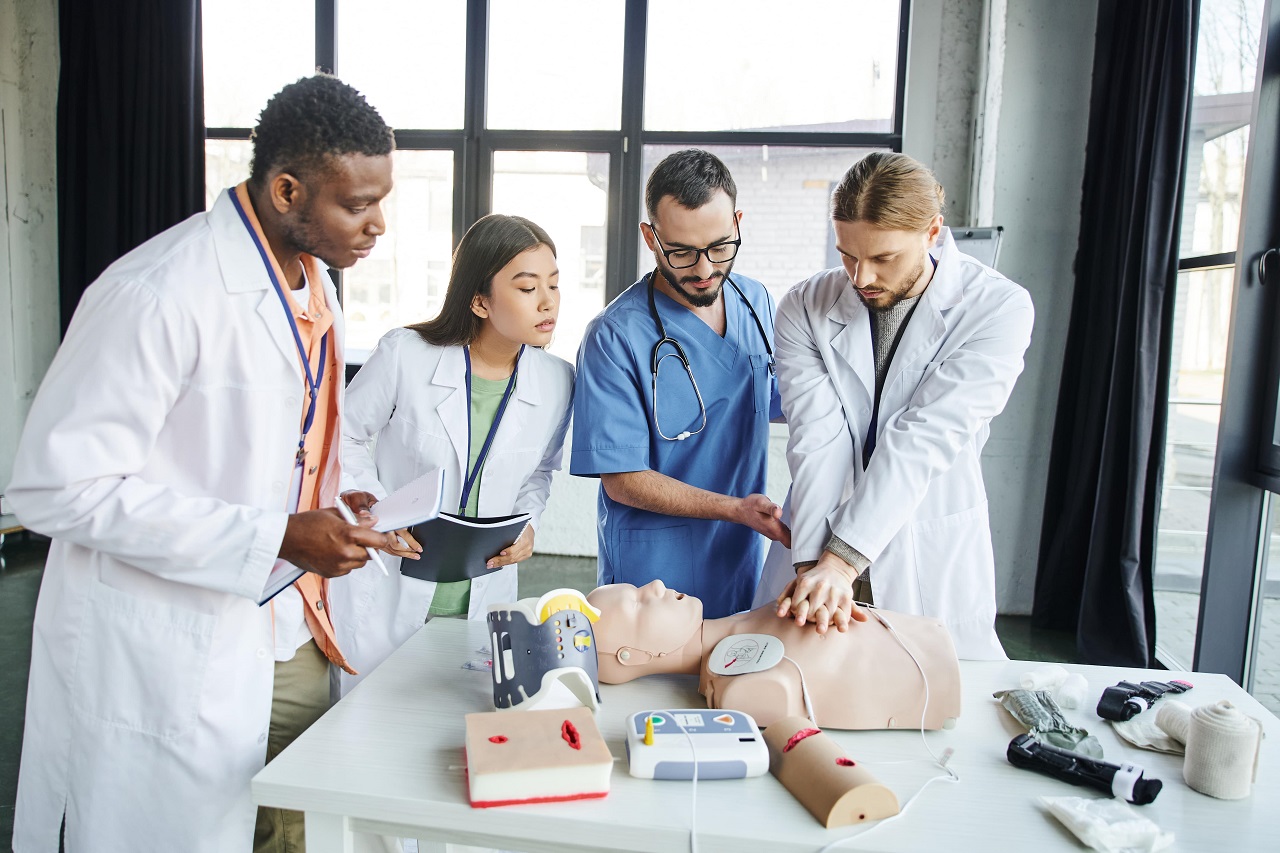Medical education in Turkiye follows a six-year undergraduate program, with no entry examination required for international students. The first three years generally focus on pre-clinical coursework, including basic medical sciences such as anatomy, physiology, and biochemistry. The following two years are clerkship years, where students engage in clinical rotations to gain hands-on experience in various medical specialties. The final year is entirely dedicated to the internship as a doctor, providing students with the opportunity to apply their knowledge and skills in a real-world setting.
The medical curriculum in Turkiye is designed to provide a comprehensive understanding of medical sciences and clinical practice. Students study subjects such as pathology, pharmacology, microbiology, and internal medicine, among others. The coursework is delivered through a combination of lectures, seminars, and practical sessions to ensure students receive a well-rounded education. Additionally, there are opportunities for international students to participate in internship programs organized in Turkiye, providing new information and experience opportunities to doctors, dentists, and general practitioners[4]. These internships typically last between one week to four weeks, with fees ranging from $1k to $1.75k.
Accreditation and recognition of medical schools in Turkiye are essential for graduates seeking employment opportunities both within the country and abroad. Turkish medical schools are internationally recognized in the World Directory of Medical Schools, with diplomas granted by accredited institutions. Ankara University School of Medicine is the first medical school in the Republic of Turkiye, offering a world-class level of education and university hospitals. The school also welcomes foreign medical students and provides access to online courses in Turkish. Studying medicine in Turkiye provides international students with the opportunity to compare the level of medicine in Turkiye with that in their own country and practice their language skills. In conclusion, medical education in Turkiye provides students with a comprehensive understanding of medical sciences and clinical practice through a six-year undergraduate program. The coursework is delivered through a combination of lectures, seminars, and practical sessions, and international students have the opportunity to participate in internship programs organized in Turkiye. Accreditation and recognition of medical schools in Turkiye are essential for graduates seeking employment opportunities both within the country and abroad. Studying medicine in Turkiye provides international students with the opportunity to compare the level of medicine in Turkiye with that in their own country and practice their language skills.
Internship opportunities for medical students in Turkiye

Internship opportunities for medical students in Turkiye are available in a variety of fields, including pediatrics, stem cell research, and physical therapy. These internships can provide students with valuable hands-on experience in their chosen field, as well as exposure to different medical practices and cultures. Internships can be either compulsory or elective, depending on the higher education program in which the student is enrolled.
The application process and requirements for medical internships in Turkiye can vary depending on the specific program and institution. Generally, international students will need to obtain a student visa, which requires a valid passport, an acceptance letter from the university, financial statements, and proof of accommodation. Some programs may also require a minimum high school score of at least 70%. For example, Ankara Medical University offers an internship program for a small group of university students, which requires an application form and Turkish translation of required documents. Similarly, the MD program at Istanbul Medipol University admits a selected group of 30 international students each year, who must fill out an application form and provide necessary documents.
Completing an internship in Turkiye can offer a range of benefits for medical students. In addition to gaining valuable hands-on experience in their field, students can also participate in the day-to-day operations and projects of a company, providing them with a more comprehensive understanding of the field. Experiential learning activities, such as internships, can also provide students with a more well-rounded education, as they engage in hands-on learning opportunities beyond the classroom. Additionally, Turkiye has emerged as a popular destination for studying medicine, with a range of programs and institutions offering high-quality education in the field. Internships and work placements in Turkiye can also provide opportunities for personal growth and cultural immersion.
Career prospects for medical graduates in Turkiye

Medical graduates in Turkiye have a wide range of employment opportunities in both public and private healthcare institutions. Public healthcare institutions include hospitals, clinics, and primary healthcare centers, while private healthcare institutions include private hospitals and clinics. These institutions offer various positions, including general practitioners, specialists, surgeons, nurses, and administrative staff. Medical graduates can also work in research and development, health education, and management positions. The demand for medical professionals in Turkiye is high, and the job market is competitive, making it an attractive destination for aspiring medical professionals.
Medical professionals in Turkiye earn a competitive salary and enjoy excellent working conditions. New graduates from six years of medical school and internship can expect a starting salary of 17,000 TL per month, equivalent to approximately $564. Medical professionals can also benefit from social security, health insurance, and retirement plans, making it an attractive career option. Additionally, medical professionals can expect to receive other benefits, such as paid leave, maternity leave, and sick leave. The benefits and salary make Turkiye a preferred destination for medical professionals.
Medical professionals in Turkiye have several professional development and advancement opportunities. The country offers various internships, fellowships, and volunteer programs that allow medical graduates to gain practical work experience and enhance their skills. Medical graduates can also participate in medical volunteer programs, such as the Medical Volunteer Abroad Program. These programs provide medical graduates with the opportunity to work with refugees and immigrants and gain valuable experience. The professional development opportunities in Turkiye make it an attractive destination for medical graduates seeking to advance their careers.
Challenges and future directions for medical education in Turkiye
One of the main challenges facing medical education in Turkiye is addressing the disparities in access to medical education. While there are a number of medical faculties throughout the country, there is still a significant gap in the number of medical students from rural and urban areas. To address this issue, there needs to be a concerted effort to increase access to medical education for students from underrepresented backgrounds. This could include initiatives such as scholarship programs, mentorship opportunities, and outreach programs aimed at encouraging students from rural areas to pursue careers in medicine.
Another important aspect of improving medical education in Turkiye is the integration of technology and innovation. With the rapid advancement of technology, there is a growing need to incorporate new tools and techniques into medical education. This could include using virtual and augmented reality to provide more immersive learning experiences, as well as utilizing telemedicine to connect medical students with patients in remote areas. Additionally, promoting active self-learning and integrating education could help medical students develop critical thinking and problem-solving skills. Furthermore, it is essential to continue improving ethics education at both the undergraduate and postgraduate levels.
Looking towards the future, there are many opportunities for medical education in Turkiye to continue to improve. For example, there is a need to further promote gender awareness in medicine and address any disparities that may exist. Additionally, there is a growing trend of Turkish medical students pursuing residency training abroad, highlighting the need to evaluate and address any factors that may be contributing to this trend. Finally, there is a need to continue to develop and improve medical education programs to ensure that they are providing students with the knowledge and skills they need to succeed in their careers as healthcare professionals.









